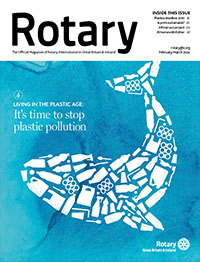Single-use plastics, or disposable plastics, are used only once before they are thrown away or recycled. These items are things like plastic bags, straws, coffee stirrers, soda and water bottles and most food packaging.
We produce roughly 300 million tons of plastic each year and half of it is disposable!
World-wide, only 10 to 13% of plastic items are recycled.
The nature of petroleum based disposable plastic makes it difficult to recycle and they have to add new virgin materials and chemicals to it to do so.
World-wide, only 10 to 13% of plastic items are recycled.”
Additionally, there are a limited number of items for which recycled plastic can be used.
Petroleum-based plastic is not biodegradable and usually goes into a landfill where it is buried or it gets into the water and finds its way into the ocean.
Although plastic will not biodegrade, so that it decomposes into natural substance like soil, it will degrade into tiny particles after many years.
"The amount of plastic entering the ocean is projected to grow four-fold by 2050. Transformative changes, including moving away from single-use towards re-useable packaging, are needed to save our oceans." #plasticpolluteshttps://t.co/xBa4ZLtrb5
— Plastic Pollutes (@PlasticPollutes) June 18, 2020
In the process of breaking down, it releases toxic chemicals (additives that were used to shape and harden the plastic) which make their way into our food and water supply.
These toxic chemicals are now being found in our bloodstream and the latest research has found them to disrupt the endocrine system which can cause cancer, infertility, birth defects, impaired immunity and many other ailments.
We produce hundreds of millions of tons of plastic every year, most of which cannot be recycled.
The focus is on using less plastic, moving towards environmentally sustainable products and services, and coming up with technology that recycles plastic more efficiently.
For more information visit – plasticfreechallenge.org



























































